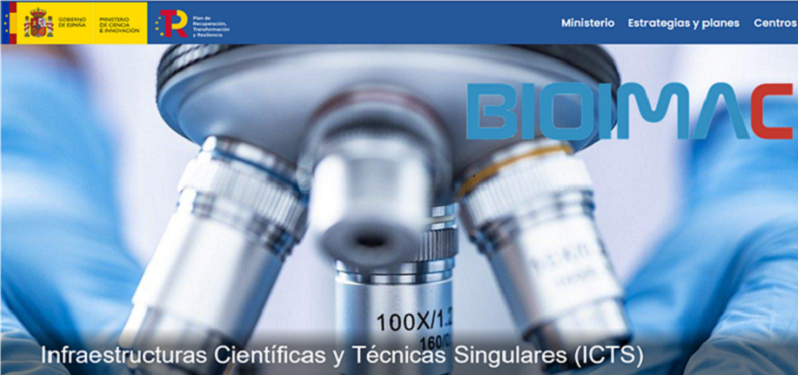Complutense Bioimaging in the Map of Singular Scientific and Technical Infrastructures (ICTS)
BioImaC joining Distributed Biomedical Imaging Network (ReDIB) approved
Bioimagen Complutense (BioImaC) has been included in the Map of Singular Scientific and Technical Infrastructures (ICTS) as a new node of the Distributed Biomedical Imaging Network (ReDIB). This was approved on 6 November by the Council for Science, Technology and Innovation Policy, chaired by the Minister of Science, Innovation and Universities, Mr. Pedro Duque.
The distributed ICTS ReDIB, in which BioImaC is integrated, is made up of the main research centres in Spain in the field of biomedical imaging:
· BioImagen Complutense (BioImaC), in Madrid.
· Advanced Translational Imaging Infrastructure (TRIMA-CNIC), in Madrid.
· PREBI-GIBI230 Infrastructure of the Hospital Universitario y Politécnico la Fe, in Valencia.
· Molecular and Functional Imaging Platform of CIC-biomaGUNE, in San Sebastian (Guipuzcoa)
ReDIB provides the scientific, technological and industrial community with cutting-edge scientific and technical infrastructures, essential for the development of competitive, quality scientific and technological research.
It offers an integrated imaging service, from the preparation of contrast agents that can be used in the different imaging modalities to the preclinical and clinical application of multimodal imaging.
The different modalities available in the distributed ICTS include Positron Emission Tomography (PET, pre-clinical and clinical), Single Photon Emission Tomography (SPECT, pre-clinical), Computerised Axial Tomography (CT, pre-clinical and clinical), Magnetic Resonance Imaging (MRI, preclinical and clinical) and optical imaging and cellular analysis (preclinical), as well as hybrid preclinical (PET/CT, SPECT/CT) and clinical (PET/MRI) imaging, complemented by laboratories for the preparation of contrast agents and infrastructures that allow their in vitro evaluation.
By joining ReDIB, UCM, through BioImaC, expands its vocation to support research, extending it to a broader national and international scientific-technological context of R&D&I, based on competitiveness and quality.


